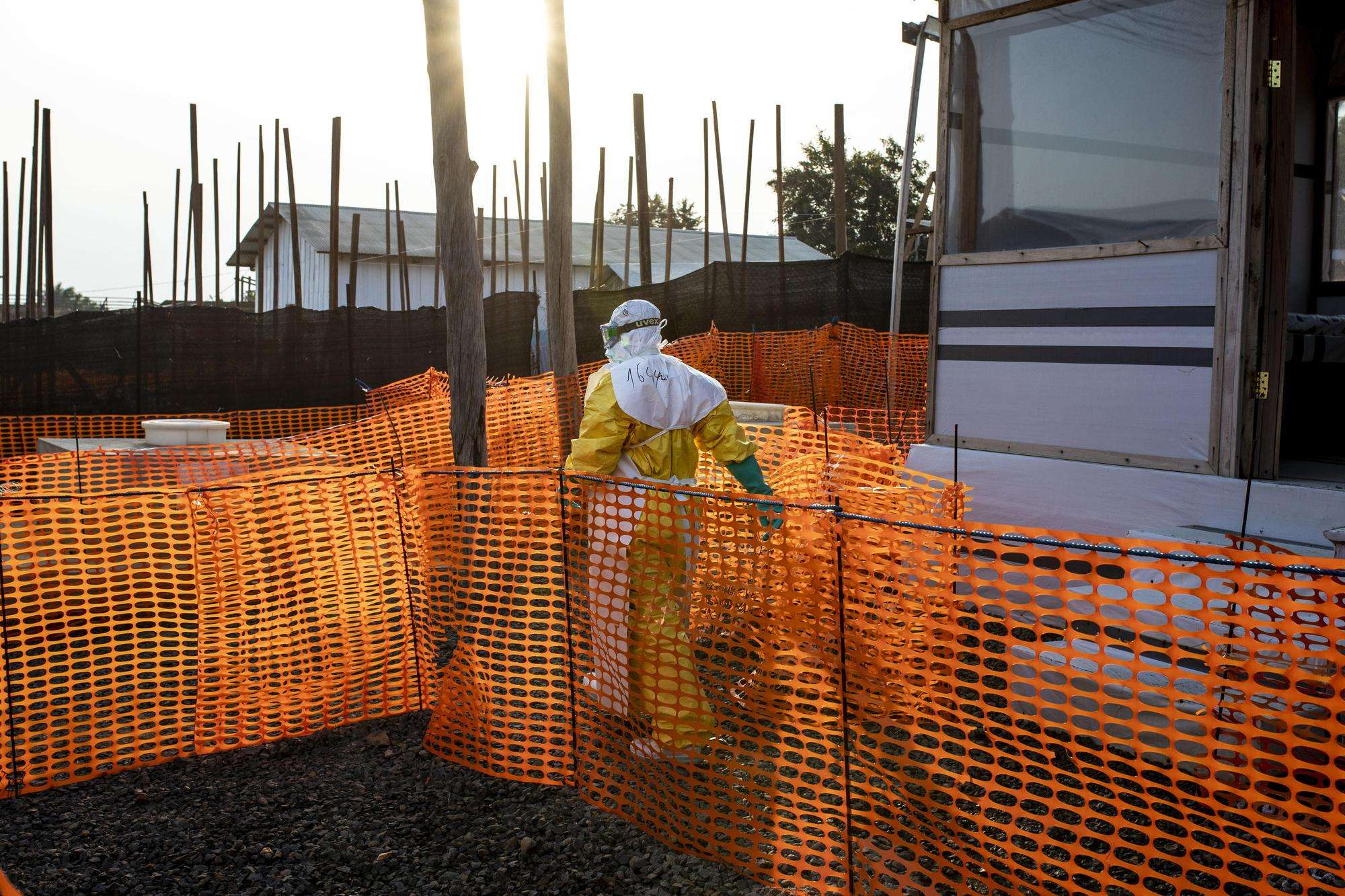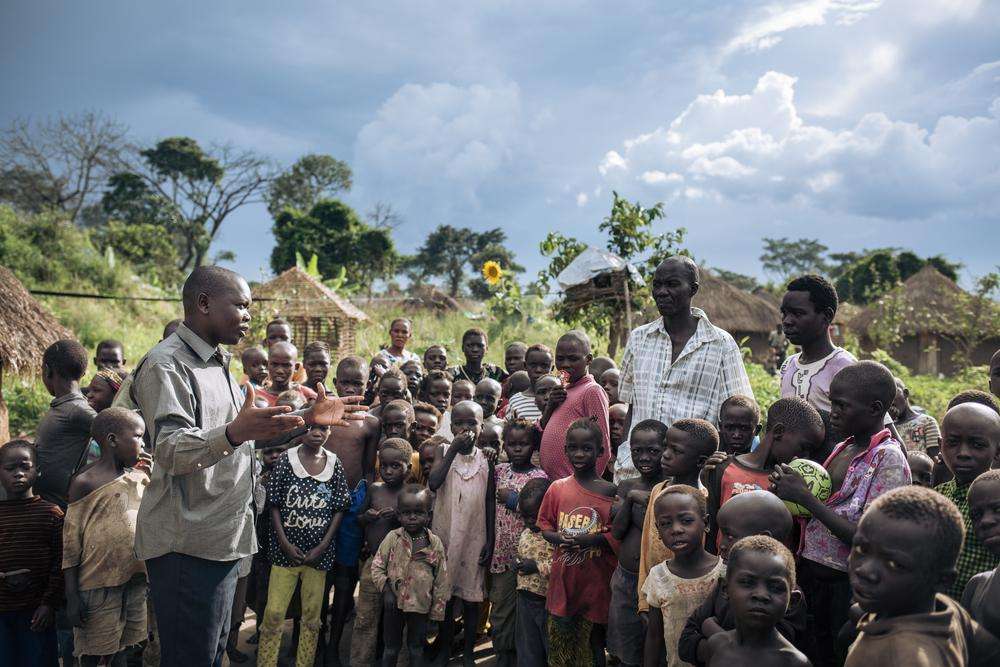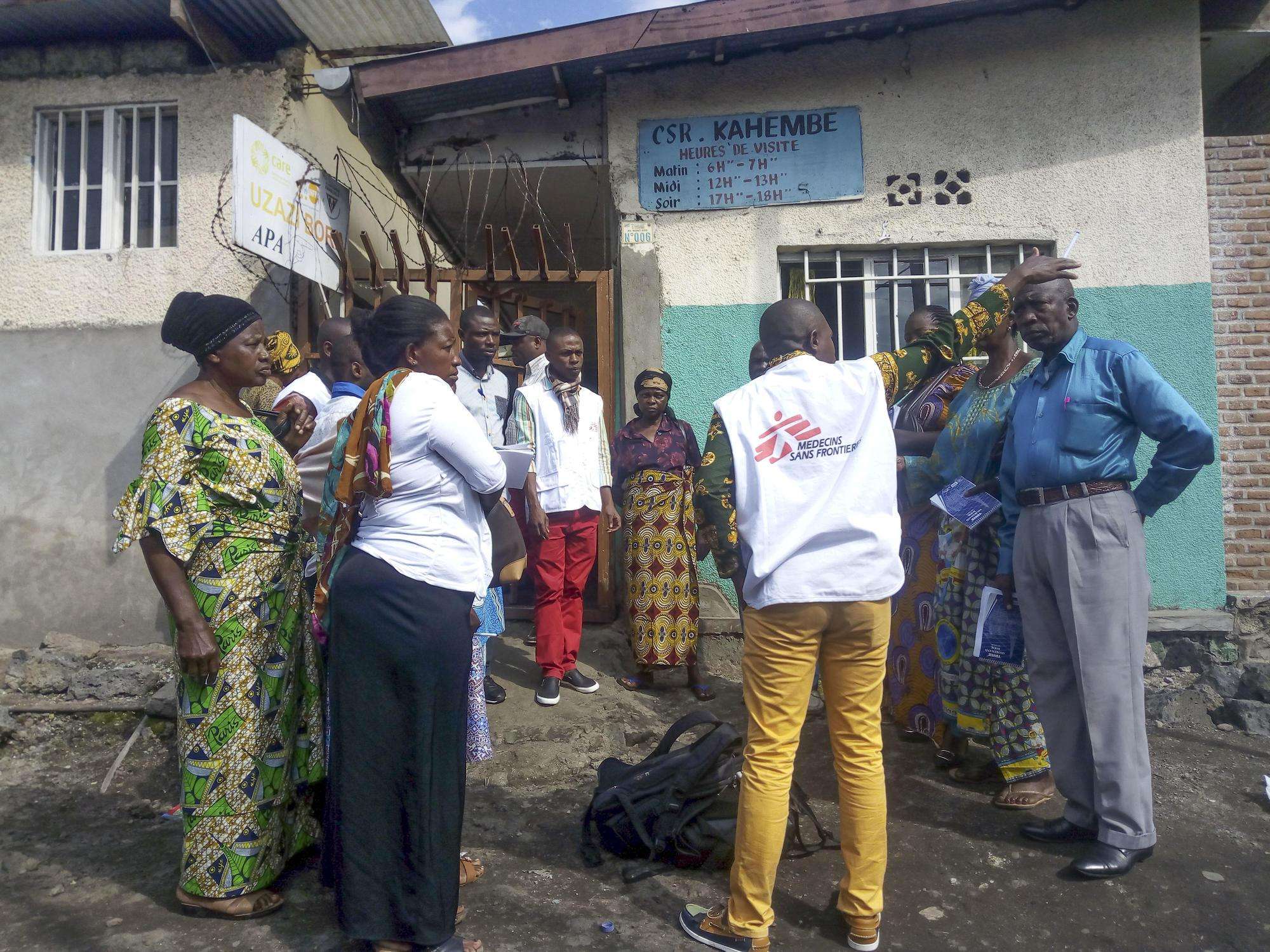The Ebola outbreak in Democratic Republic of Congo (DRC), the world's second-largest outbreak of the disease ever recorded, may finally be coming to an end. On March 3, 2020, Semida Masika was discharged from a Doctors Without Borders/Médecins Sans Frontières (MSF) Ebola treatment center in Beni, in North Kivu province. She was the last patient with a confirmed case of Ebola. If there are no new cases, the epidemic could be declared over by mid-April. The World Health Organization (WHO) recommends waiting two full incubation periods—42 days—after the last person tests negative a second time before declaring the end of the outbreak.
While this was a milestone moment in the outbreak, it is too soon to celebrate. And even when the outbreak is officially declared over, should we celebrate then? Ever since the outbreak was first declared on August 1, 2018, there has been a massive international response—known as the Riposte—aimed at bringing it under control. Here, Trish Newport, emergency coordinator for MSF’s Ebola response in DRC, looks at some of the problems associated with the Riposte and warns that we must learn from our mistakes to better manage future outbreaks.
“We’re being attacked in the Ebola treatment center!” This is what I heard when I picked up my phone on February 27, last year. I was in Geneva, having just returned from DRC, where I had coordinated MSF’s response to the Ebola outbreak. The person calling me was in the 96-bed Butembo Ebola treatment center (ETC) as armed men forced their way through the main gate and opened fire. When they stopped firing their guns, they set the treatment center on fire.
At the time of the attack, more than 50 patients were in the ETC. All of them fled. The 60 MSF staff working in the ETC also fled. Staff and patients hid together in nearby buildings and in the surrounding forest. It was terrifying for everyone involved.
Because MSF could no longer ensure the safety of our patients and our staff, we evacuated all our teams from Butembo and the surrounding area on the day following the attack. It was a hard decision, but we had no choice.
“My priority is not Ebola—that is your priority"
I asked one of my Congolese colleagues why there was so much anger directed at the humanitarian response to Ebola. This was her reply:
"My husband was killed in a massacre in Beni. At that time, all I wanted was some organization to come and protect us from the killings, but no international organization came. I have had three children die of malaria. No international organization has ever come to work in this area to make sure we have health care or clean water. But now Ebola arrives and all the organizations come, because Ebola gives them money. If you cared about us, you would ask us what our priorities are. My priorities are security, and making sure my children don't die from malaria or diarrhea. My priority is not Ebola—that is your priority."
So we agreed that from then on, MSF would listen to and respond to the health priorities of the population and only set up activities with the full backing of the community.
We began by building wells. We provided access to treatment not just for Ebola, but for the other diseases that were killing people–diarrhea, malaria, and pneumonia. And when we built Ebola centers, we made sure that the community was involved in the design and creation.
We followed the direction of the community, and, as a result, the communities felt ownership of their Ebola centers. People stopped refusing to be isolated and they started to come to the Ebola centers as soon as they felt sick. And this caused a huge reduction in the number of Ebola cases occurring within the community.
Lessons learned and forgotten
There is nothing groundbreaking about this. In fact, one of the major lessons learned from the West African Ebola outbreak of 2014-15, where MSF had a large presence, was that community engagement was essential in order to stop an outbreak early. It was a lesson learned, but somehow forgotten, and not only by MSF.
The international response to the Ebola outbreak in DRC, or “the Riposte,” was led by the Congolese government with support from the World Health Organization (WHO). All organizations involved in the Ebola response, including international organizations such as MSF, collaborated with the Riposte.
At the start of the outbreak in August 2018, everyone involved in the response, including MSF, jumped straight into emergency mode, deploying hundreds of staff and quickly setting up activities based on the classic approach to fast-onset health emergencies.
No time was taken to engage with the affected communities, to build trust or to consider the fact that the outbreak was happening in an area that had been plagued in recent years by conflict, including massacres of civilians.
Since then, millions of dollars have gone into the humanitarian system responding to Ebola, and yet the number of cases continued to climb, and cases continued to spread into new regions.
Alienating the local community
In time, the Riposte began to engage more with the community, but it also continued to do things that alienated them from the local community, such as using armed escorts, forcibly isolating patients, performing forced burials, and stationing armed personnel in health facilities.
These tactics not only made it more challenging to stop the outbreak, but they also made people reluctant to access “regular” health services out of fear they would be identified as possible Ebola suspects or out of fear of the armed personnel in the health facility. It is impossible to know how many people suffering from non-Ebola related illnesses didn’t receive proper medical care because of the Riposte’s approach.
Despite all these problems, the number of Ebola cases is finally dwindling and, hopefully one day soon, the outbreak will end.
How will we respond to future outbreaks?
Should we celebrate the end of the outbreak? Should we regard the response as a success? I’m not so sure. My fear is that when this is over, the various organizations involved in the Riposte will congratulate themselves and say that the outbreak came to an end because of how they managed it, when in fact it was despite it.
This could set a worrying precedent for the management of future outbreaks by standardizing the use of coercion, armed escorts, and the presence of armed personnel in health facilities at the expense of treating people with dignity and engaging them in decisions related to their health.
I will never forget last February’s phone call from Butembo. It is excruciatingly horrible to hear your own colleagues come under attack from gunfire. I will also never forget the pain of evacuating our teams from Butembo, leaving behind people who were in so much need.
But I will always remember the powerful impact of the changes we made after the attack, when we finally engaged properly with the community and made them part of our response to the outbreak. I hope that these lessons learned are not forgotten or overlooked when the next outbreak occurs.






